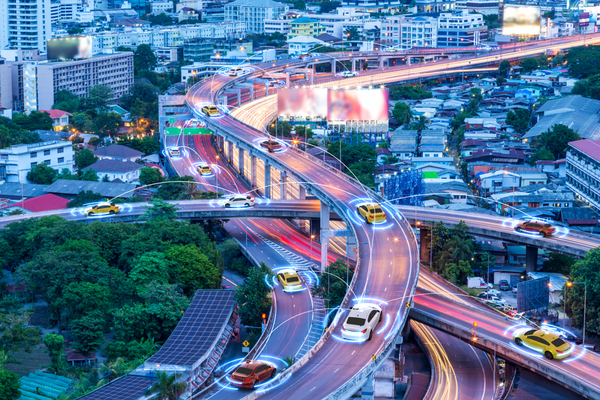California, the largest vehicle market in the United States, will require all light-duty autonomous vehicles (AV) to emit zero emissions starting in 2030. On Thursday, Governor Gavin Newsom signed into law a bill sponsored by environmental groups that would eventually prohibit gas- and hybrid-powered autonomous vehicles from operating in the state. It was the latest move by Newsom to restrict the sale and use of internal combustion engine vehicles amid a broader effort to rein in greenhouse gas emissions. Last year, the governor signed two executive orders: one requiring all commercial trucks and vans sold in the state to be zero-emission starting in 2045 and another requiring only the sale of zero-emission passenger vehicles by 2035.
California was the first state in the US to prohibit the sale of nearly all fossil fuel-burning vehicles in its borders. At least 15 states have followed the state’s lead, passing similar measures that would apply to heavy-duty trucks, vans, and buses. In California, there are nearly 15 million registered vehicles on the road. AVs only account for a small fraction of that total amount, but some experts predict those numbers will grow as AVs become more capable and companies move to commercialize their use. Other groups have expressed worry that autonomous vehicles could usher in an era of even more traffic and pollution, especially if AVs are priced cheaper than public transportation.
California is ground zero for AV testing in the US, with over 50 companies licensed to operate autonomous vehicles for testing purposes in the state. A handful of companies hold permits to test fully driverless vehicles, without safety drivers behind the steering wheel. And an even smaller number have been approved to pick up and drop off passengers as part of a commercial robotaxi service. AVs registered in California traveled approximately 1.99 million miles in autonomous mode on public roads in 2020.
The two companies that comprise the bulk of that testing, Alphabet’s Waymo and GM-backed Cruise, both operate fully electric vehicles as part of their fleets. Waymo uses the Jaguar I-Pace SUV, as well as the non-electric Chrysler Pacifica minivan, though the company has declined to say exactly how many of each vehicle it owns. Cruise exclusively uses the Chevy Volt, a vehicle that is currently subject to a massive recall because some of the batteries have been catching fire. “We’re grateful for California’s leadership in ensuring this will be the industry standard,” said Prashanthi Raman, head of global government affairs at Cruise, in a statement. “The AV industry is primed to lead the way in reducing greenhouse gas emissions in cities, and it’s why we’ve operated an all-electric, zero emissions fleet from the start.”
Environmental groups praised Newsom for signing the bill into law. The Union of Concerned Scientists, which helped sponsor the legislation, said it was a “smart policy to ensure that driverless vehicles don’t contribute to the problem” of climate change. However, some AV operators have argued that electric vehicles are a bad fit for self-driving cars because of the extended charging requirements. In order to make a profit, autonomous vehicles need to maximize their time on the road, delivering people or packages, otherwise they’re likely to be a money-loser, they argue.
—
Photo Credit: Suwin / Shutterstock.com
